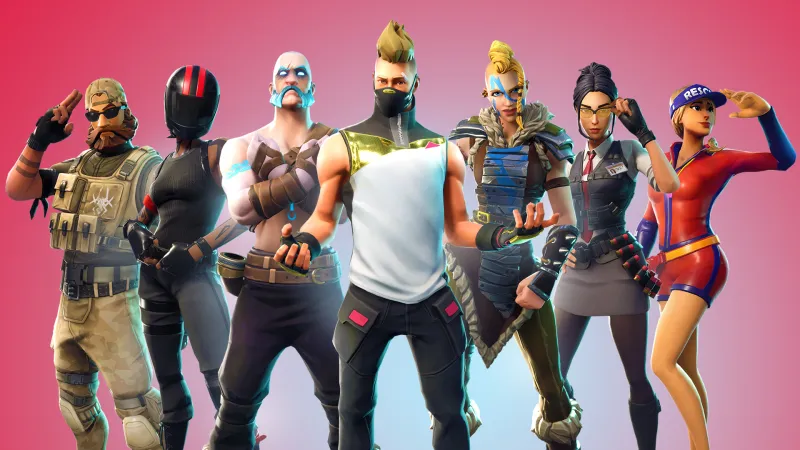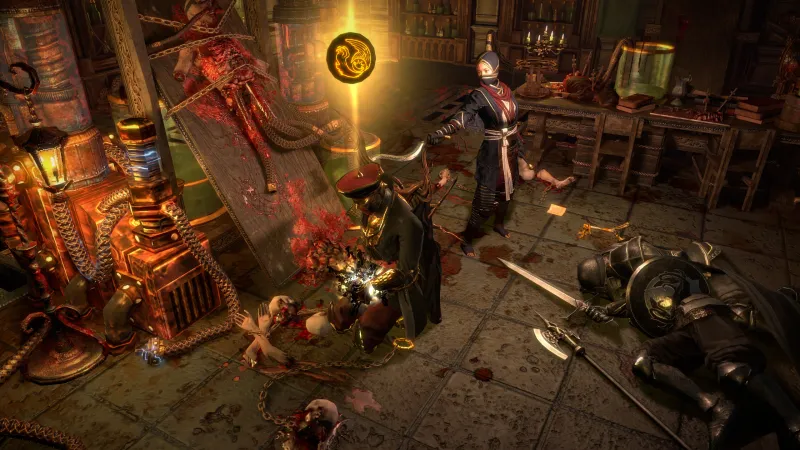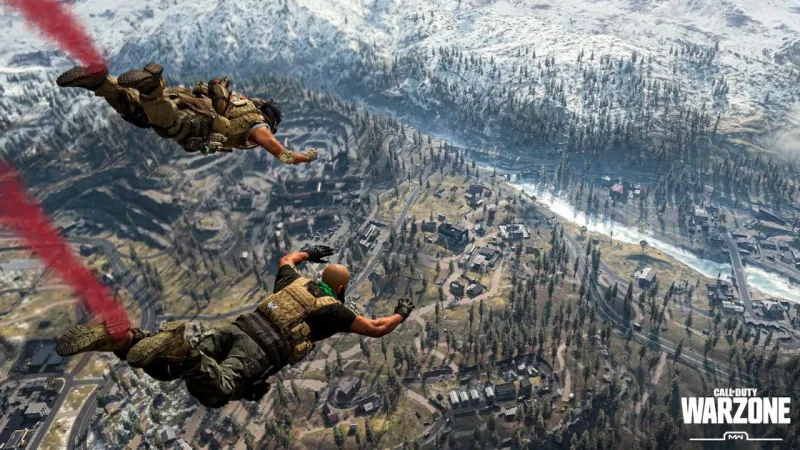

Our extra-large special edition is here. Subscribe today and receive the 25% longer issue at no extra cost!

I don’t remember exactly when I became familiar with “free-to-play” as a specific designation, but I do know that I had no interest in playing the games it applied to. From shoddy MMOs to Facebook distractions, I thought of all free-to-play games were thinly disguised attempts to siphon money from players – all while meeting only the barest possible definition of “game.” The only one I spent considerable time with was Farmville, but that was because I was writing a piece for Game Informer’s May 2010 issue that ended up being about how terrible and predatory Farmville was. After that, I generally wrote off free-to-play games.
However, while I was ignoring them, free-to-play games got surprisingly good. At least, some of them did; you can still find plenty of bad and exploitative examples, but recent years have seen remarkable progress toward scouring away some of the negative connotations the term carries. Some of the most popular and successful games of the last decade have been free-to-play titles, like Fortnite, Dota 2, and League of Legends. These games aren’t just perfunctory interfaces meant to drive microtransactions; they are fun, immersive, skill-based experiences (which also happen to have microtransactions). It’s okay if you don’t like or play these games yourself, but they demonstrate that players can’t just dismiss free-to-play titles as “not real games” anymore. And not only are they real – they keep getting better.

Here’s an important distinction that I don’t want to get lost: I’m not saying that a free-to-play business model is good, nor am I advocating for it over the more traditional “pay once and you own it” approach. Personally, I still prefer games that don’t have any microtransactions at all. What I am saying is that the “game” part of “free-to-play games” used to be very, very bad. But today, whether or not you choose to spend money on them, the quality of the design, mechanics, and worlds for many of these experiences can be on par with conventionally purchased games. Unlike 10 years ago, you can no longer skip every free-to-play game and remain confident that you aren’t missing anything good or important.
One of the big eye-openers for me was Path of Exile. If you love action/RPGs in the vein of Blizzard’s Diablo series, you can’t miss Grinding Gear Games’ foray into the genre. It doesn’t need or deserve any qualifier like “Sure, it’s good enough … for a free-to-play game.” I think it sits at the top of the genre; I played a lot of Diablo III (and loved it), but I still prefer Path of Exile. The complex skill tree, seemingly limitless build options, and constant evolution via seasons makes this a rewarding game to return to again and again. It crashes more often than I’d like, but that’s my only major complaint. You can easily play through the huge story campaign of this great game without spending a dime, and you will never hit a paywall that throttles your progress. The things you can spend real money on are mainly matters of cosmetics and convenience, like stash tabs that help you keep your inventory straight. I ended up investing in some of those, but those purchases haven’t even added up to $60, despite sinking several dozen of hours into Path of Exile.

More recently, Genshin Impact is another free-to-play game that has been capturing my attention. It’s an open-world RPG that feels like a meeting point between Breath of the Wild and Xenoblade Chronicles 2, skillfully picking from the most engaging parts of both games. It has a vast and gorgeous world, multiple avenues of progression, four-player co-op, and approachable combat system that lets you see all of your cool characters in action. However, the multiple currencies and gacha-style rewards are a bit more intrusive than I’d like. The game tries hard to entice you with its microtransactions, and the more money you spend, the more powerful you will be. But that isn’t a necessity, and players who refrain from spending anything can still fully appreciate the thrill of exploring this unique fantasy universe.
Those are just a few examples drawn from my personal experiences. I’ve heard equally passionate endorsements from friends and colleagues for games like Warframe, Apex Legends, Call of Duty: Warzone, and more. These recommendations aren’t only coming from a place a thrift; of all the reasons I’ve heard to play these games, “it’s free” is rarely at the top of the list. People just like these games because they are good and fun to play.

Considering that, part of me feels the need to ask, “If they didn’t use a free-to-play system fueled by microtransactions, wouldn’t these games be better”? Unequivocally, I think the answer to that question is “yes.” In a perfect world, I would prefer to play games like Genshin Impact without the gross monetization, no matter how peripheral it may be. But you also need to ask: Without the free-to-play framework, would these games even exist at all? If the development studios weren’t able to build and monetize these games the way they did, I wonder how many of them would have died on the vine, rather than find their audiences. I’d rather have more good games to choose from than fewer, and more ways for developers to find success. I know it’s easy to hate microtransactions and demonize free-to-play games, but for the investment of only a little time, you might find something exceptional.

Explore your favorite games in premium print format, delivered to your door.